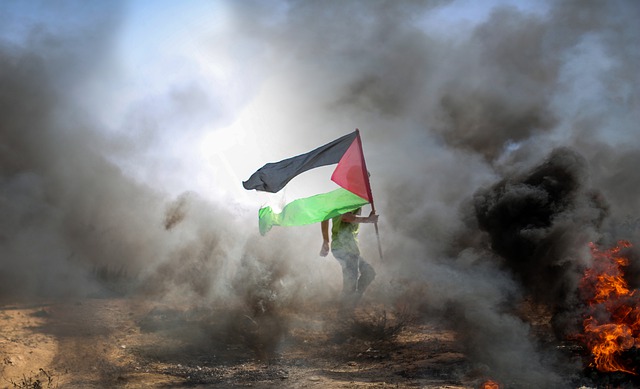
ProtectDefenders.eu partners have received with great concern the information about the designation of six Palestinian human rights organisations as “terrorist organisations” by Israel, under Israel’s domestic Anti-Terrorism Law, 5776-2016. The six organisations are Al-Haq, Law in the Service of Man, Addameer Prisoner Support and Human Rights Association, Bisan Center for Research and Development, Defence for Children International-Palestine (DCI-Palestine), the Union of Agricultural Work Committees (UAWC) and the Union of Palestinian Women’s Committees (UPWC). Al-Haq is a member organisation of the FIDH. Addameer, Al-Haq, and DCI-Palestine are members of the OMCT SOS-Torture network.
On October 19, the Israeli Defence Ministry issued six military orders pursuant to the Anti-Terrorism Law 5776 of 2016 declaring that the above-mentioned human rights NGOs were operating in a network run by the Popular Front for the Liberation of Palestine (PFLP), which Israel considers to be a “terror group”. The orders were made public on October 22, 2021, when the Minister of Defence claimed that “those organisations were active under the cover of civil society organisations, but in practice belong and constitute an arm of the [PFLP] leadership, the main activity of which is the liberation of Palestine and destruction of Israel”. No evidence has been provided by the Ministry of Defence to substantiate these allegations. Moreover, according to the Anti-Terrorism Law 5776 of 2016, such evidence remains classified. At the time of publication of this information, no criminal charges have been brought forward against the six organisations.
According to Israeli military and civilian law, designation as a “terrorist organisation” allows for the Israeli law enforcement bodies to close the organisations’ offices, seize their assets and arrests its members. It forbids funding and expressing support for their activities. Moreover, donors and supporters may also be subject to up to five years of imprisonment.
Since the October 22 announcement, smearing acts and campaigns have escalated on social media. On October 23, 2021, Mr. Shawan Jabbarin, Al-Haq’s General Director and FIDH’s Secretary-General, was attacked personally on Twitter. Additionally, supporters of the six NGOs have been targeted by a complaint filed by far-right group Im Tirtzu on the basis of the Anti-Terrorism Law for expressing support for those organisations.
Continuous attempts by the Israeli authorities to delegitimise human rights organisations have been well documented over the years, including in a recent report published by the Observatory for the Protection of Human Rights Defenders. The report exposes the threefold strategy of the Israeli government: one, delegitimising civil society critical voices through “naming and shaming” and associating them with terrorists or anti-Semitics; two, pressuring anyone giving a platform for their discourse; three, lobbying actively to cut their sources of funding.
In solidarity with Palestinian civil society, ProtectDefenders.eu’ partner ESCR-Net – International Network for Economic, Social and Cultural Rights issued a letter joining the global condemnation of this blatant attack on the Palestinian human rights movement and the wider civil society through false baseless accusations, which stand as clear attempts to silence Palestinian human rights defenders and civil society criticism and evade accountability by Israel. These attacks on the Palestinian civil society must be condemned by the international community and the protection of staff and the ability of human rights organizations to continue their work must be guaranteed.
RSF ranks the situation of media and journalism in the Occupied Territories 132nd in its 2021 World Press Freedom Index. Continuing political tension increases the dangers of journalism in Palestine. Since May 2018, two Palestinian journalists have been killed by Israeli snipers and dozens have been wounded while covering the “March of Return” protests in the Gaza Strip, which are continuing. In the West Bank, the use of live rounds by the Israel Defence Forces to disperse protests exposes reporters to the possibility of serious injury. At least three Palestinian journalists have permanently lost the use of an eye in this way. The Israeli forces have continued to subject Palestinian journalists to arrest, interrogation and administrative detention, often without any clear grounds. In recent years, the Israeli authorities have also closed several Palestinian media outlets for allegedly inciting violence. For journalists, the price of the political rivalry between Fatah and Hamas in the Palestinian territories includes threats, heavy-handed interrogation, arrest without charge, intimidatory lawsuits and prosecutions, and bans on covering certain events. The political tension combined with harassment by the Israeli authorities complicates the work of Palestinian journalists to the point of self-censorship. Several websites regarded by the Palestinian Authority as opposition media have been inaccessible since 2017. Online platforms such as Facebook and Twitter also sometimes censor information. Under Israeli political pressure, these platforms have deleted content or suspended the accounts of Palestinian journalists and media outlets accused of inciting violence. In some cases, deleted content has been restored after appeals to moderators, but local NGOs accuse platforms of using “double standards” in their treatment of Israeli and Palestinian content.


